Partnership Firm
Partnership Firm
- On call Discussion on Business Model.
- Partnership Deed Drafting
- Partnership Deed Registration.
- Partnership PAN Number
- GST Registration
- On call Discussion on Business Model.
- Partnership Deed Drafting
- Partnership Deed Registration.
- Partnership PAN Number
- GST Registration
Partnership Firm Registration - An Overview
The term “Partnership” is although a short and straightforward word but has a strong meaning is attached to it. In the corporate arena, the term partnership refers to a relation or an association between two or more people who decides mutually to establish a business and also to share profits and losses of such business. This business structure is either carried on by all the partners or by any one of them acting for all (Principal and Agent Relationship). Moreover, it is established on legal terms; hence, all the rules and regulations must be complied with while obtaining Partnership Firm Registration. Lastly, this business format is usually chosen either by the budding start-ups, entrepreneurs, or by the small and medium-sized businesses operating in the unorganized sectors.
Documents Required
Partner's Document
- PAN Card of each Partner
- Voter’s ID/ Passport/Driver’s License
- Application in Form 1, for the registration of partnership firm
- Passport-sized photograph
- Original Certified copy of the Partnership Deed
- Specimen of an Affidavit
Registered Office Document
- Latest Bank Statement / Telephone Bill / Electricity or Gas Bill
- Notarized lease agreement in English
- No-Objection Certificate from the property owner
- Sale Deed/ property deed in English (if owned property)
PROCESS
- Choose a Unique name for the Firm.
- File an Application for the Registration.
- Preparation of a Partnership Deed.
- Submission of the Documents.
- Certificate of Registration issue
- Apply PAN for firm.
POST REGISTRATION
- GST Registration for Firm.
- Open Bank Account within 30 Days of Registration
Benefits of Partnership Firm Registration

A minimum of two persons required to establish a Partnership Firm. Further, a maximum of 20 peoples are allowed in a partnership firm. However, a maximum of 10 peoples are allowed if in case the partnership firm deals with some banking activities.
In the case of a partnership firm, there is no prescribed limit of the minimum capital required.
Partnership firms are considered as one of the easiest and simplest business structures to form. This means two people can establish or incorporate a partnership deed just by formulating a Partnership Deed. Moreover, the formation of a partnership firm involves adherence to a simple registration process with minimum documents.
One of the most significant advantage or a benefit annexed with the concept of partnership firm registration is the faster and easier process of decision making as in the case of a partnership firm there is no need to either follow regulations for passing a resolution.
As we know that incompetency in raising funds is the most significant disadvantage annexed with the business models like sole proprietorship. However, the same is not an issue with the partnership firm due to the availability of multiple partners. The availability of multiple partners leads to more feasible contributions. Moreover, banks also consider partnership firms more for sanctioning loans and credits over sole proprietorship.
In a Partnership Firm, all the partners working are assigned works, responsibilities, and duties as per their capability, and the same is mentioned in the Partnership Deed as well. Further, a Partnership deed acts as a Magna Carta for the firm as all the details, specifications, roles and responsibilities, profit-sharing ratios, etc. are mentioned in it. Moreover, it also assists in eradicating or reducing the chances of conflicts between the partners.
Why BizOkay India?


Frequently Asked Questions
There are two types of partnership prevalent in India, which are Partnership at Will and Particular Partnership.
No, it is not compulsory to obtain Partnership Firm Registration in India. However, it is always advisable to get registration as a registered partnership firm enjoys some exclusive rights which are not available to the unregistered partnership firms.
A Partnership firm is a business format where a formal agreement has been made between two or more people who have agreed to distribute responsibilities for running an organization. Some of the prominent examples of Partnership Firm includes Red Bull and GoPro; Spotify and Uber; Levi’s and Pinterest; Hindustan Petroleum; Louis Vuitton and BMW; Warner Bros; Hewlett Packard etc.
In India, the advantages of a partnership firm include Easy to Start; Decision Making; Raising of Funds; Sense of Ownership; Easy Management without any Disputes; Fewer Compliances; Inexpensive to Establish; Minimal Legal Responsibilities; Flexibility; Tax Advantage.
In India, the time period required for obtaining the Registration of a Partnership Firm varies from 14 to 16 working days.
The grounds on which a partnership firm can be termed as invalid are, when it is carrying out an illegal or unlawful activity or if the court finds the firm invalid.
In case of partnership at will, the partners can dissolve the firm by giving notice. Further, it can also be terminated based on the conditions laid down in Partnership Deed.
No, a company cannot accept or take a loan from a Partnership firm even if the partners of the said firm are members or directors of the Company. The reason for such restriction is that, as per the Companies Act, 2013, a company can take loans from any person other than the Director or Member or Relative of the Director.
Yes, a partnership firm can acquire registration under MSME Act, 2006, by filling the application form and opening a current bank account.
No, a foreigner is not eligible to become a partner in a partnership firm, as only a person who is a resident of India is eligible to become a partner.
The necessary annual compliances for a partnership firm include ITR (Income Tax Return) for both firm and partners. Further, the filling of GST Return is also mandatory for a partnership firm.
Yes, a partnership firm can easily be converted into a private limited company by satisfying all the criteria and filing form with authority.
Yes, an Indian resident can make investments in a Partnership Firm. However, the feature of limited liability does not apply to this business structure, unlike LLP or Private Limited Company.
The partners need to file an application for the Partnership Firm Registration with the Registrar of Firms (ROF), who has jurisdiction over the place of business of the Partnership Firm. On the receipt of the application, the registrar of firm will examine and scrutinize the documents and thereby issues the Certificate of Registration of Partnership Firm.
No, in India, partnership firms are not required to file Annual Return. However, the filling of Income Tax Return (ITR) before the due date is mandatory for a partnership firm. Further, in the partnership Act, 1932, there is no such provision of audit, i.e., firms are not required to get their books of account audited. However, getting the tax audit done is mandatory if the annual turnover of the firm exceeds Rs. 2 Crore.
